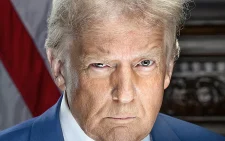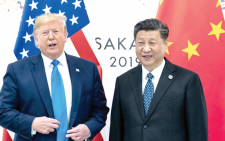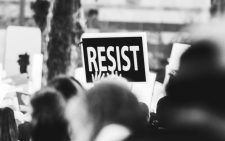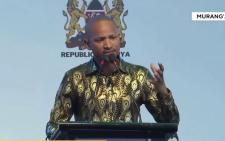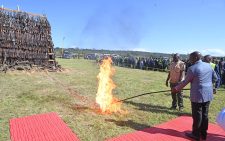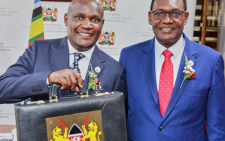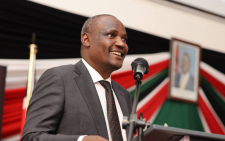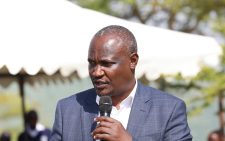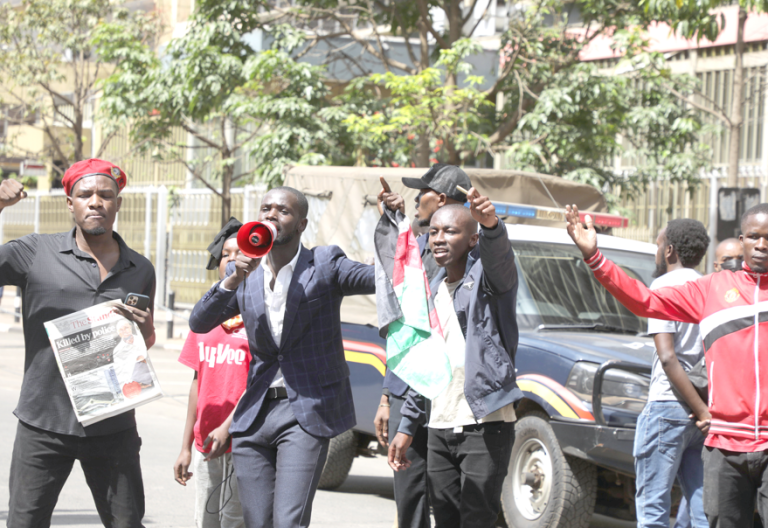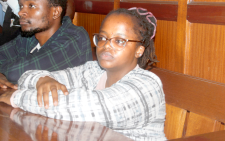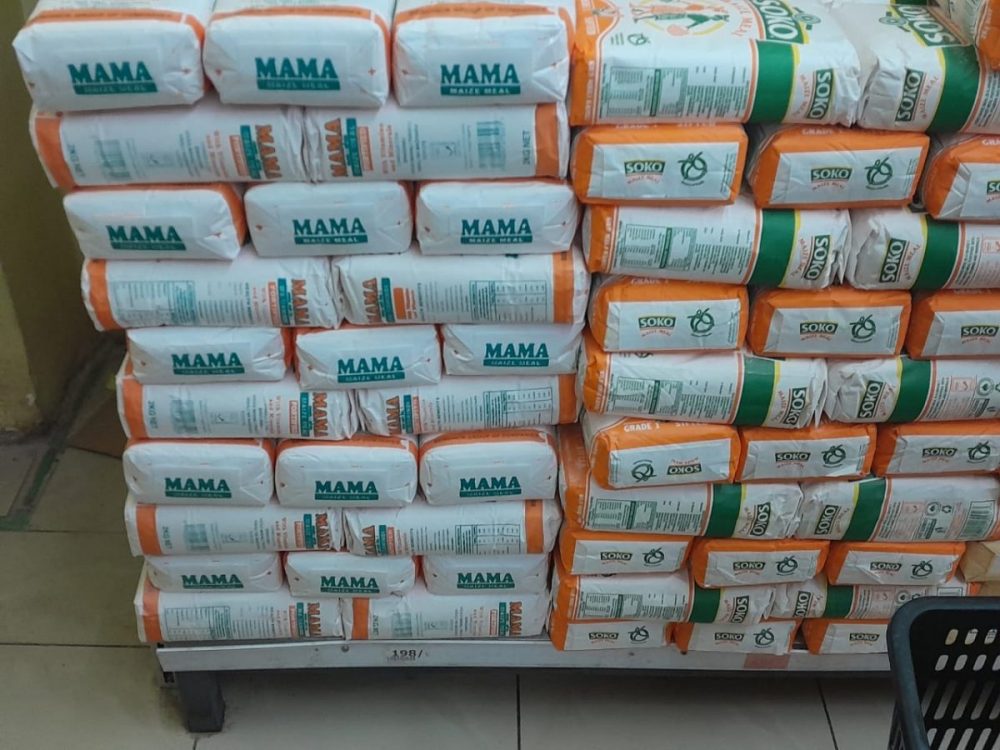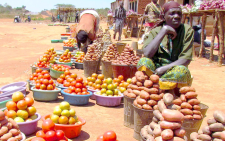Is Trump hunting for DR Congo minerals, arms or clean energy?
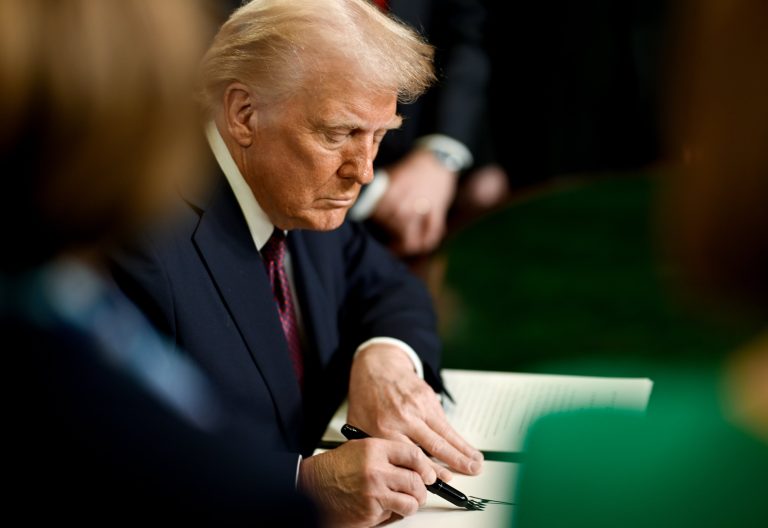
He may have ripped up Joe Biden’s climate and foreign policy, but US President Donald Trump is pushing forward with his predecessor’s pursuit of metals abroad – albeit with a different motive.
Trump is following the minerals trail. Is the pursuit of these critical reasons for weapons, not clean energy?, ask UK-based Climate Home News Africa energy transition reporter Vivian Chime and editors Joe Lo and Megan Rowling.
Writing in the latest edition of the award-winning independent digital publication covering the international politics of the climate crisis, they analyse the simmering war between green energy and fossil fuels, described as “transition tensions”.
The war between the sources of energy has taken a dramatic turn after Trump returned to the White House. Now the US is racing to secure supplies of critical minerals including from war-torn Democratic Republic of the Congo.
However, the military uses of these critical minerals seem to be a higher priority than advancing a green transition, argues Climate Home News.
Biden spent some of his final days as US president in Angola, talking up a railway that will bring copper and cobalt from Central Africa to the continent’s west coast where the material can be shipped to the US,
Trump has discussed deals to provide military assistance to the war-torn nations of Ukraine and the DRC in return for minerals, threatened to take over mineral-rich Greenland, and is reportedly considering a new law that would bypass United Nations discussions so as to allow mining in the deep seabed in international waters.
New proposal
Last week, Massad Boulos, Trump’s senior adviser on Africa – and the father-in-law to Trump’s daughter, Tiffany – travelled to the DRC as his first port of call shortly after being appointed. In a meeting with DRC President Felix Tshisekedi, he said the US had reviewed the DRC’s mineral proposal.
“I am pleased to announce that the President (Tshisekedi) and I have agreed on a path forward for its development,” Boulos said, in a statement from the DRC government.
Details of the mooted deal are not yet public, but Boulos said he would work with Tshisekedi to build a deeper relationship that benefits Congolese and American people. He said he would work to stimulate American private sector investment in the DRC, particularly in the mining sector.
A day earlier, Trump exempted key minerals like copper and cobalt from the new trade tariffs he slapped on nations around the world. The DRC and Zambia are among the world’s leading producers of these two minerals. Chingola in Zambia sits atop one of the world’s largest reserves of copper – a reddish metal that is particularly good at conducting heat and electricity and is pivotal to the world’s clean energy transition.
Writing via NakedCapitalism.com on December 27, 2022, Conor Galagher said the US had intensified its efforts to cut China off from advanced semiconductors, and the US was also making a run at the DRC, renowned as the world’s most important source of minerals used in tech.
The DRC is sometimes called “the Saudi Arabia of the electric vehicle age” because it produces 70 per cent of the world’s cobalt, a key component in the production of lithium-ion batteries that power phones, computers, and electric vehicles. Electric vehicle sales worldwide are predicted to grow from 6.5 million in 2021 to 66 million in 2040.
The DRC is also Africa’s largest producer of copper, with some of the mines estimated to contain grades above 3 per cent, significantly higher than the global average of 0.6-0.8 percent. It also has 70 per cent of the world’s coltan, which is critical to cell phone and computer manufacturing. All in all, it is estimated that the DRC has US$24 trillion worth of untapped mineral resources.
EV production
On December 13, 2022, the United States signed deals with the DRC and Zambia- the world’s sixth-largest copper producer and second-largest producer of cobalt in Africa, after the DRC- that would see the US support the two countries in developing an electric vehicle value chain, an action that Trump has now taken a notch higher.
Aside from a Jeff Bezos (the world’s second richest man after Elon Musk, the owner of the largest electric vehicle production unit in the US, Tesla) and Bill Gates-backed cobalt mine in northern Zambia, details of the 2022 deals are sparse. However, it marked a turning point in the fierce US-China race for the two countries vast mineral resources.
For more than a decade, Chinese companies have spent billions of dollars buying out US and European miners in the DRC’s Cobalt Belt, leading to control of 15 of 19 of the primary cobalt mines in the country.
China sources 60 per cent of its cobalt need from the DRC, and about 80 per cent of the world’s cobalt processing occurs in China before being incorporated into lithium-ion batteries. The DRC-China relationship has been on the rocks, however, and Chinese mining had started to encounter increasing bumps on the road when the US stepped up its courtship of the two African nations for mineral wealth, which Trump is intensifying.
The big unanswered question, is why Trump’s administration is so keen to secure supplies of these resources, which are increasingly sought-after because they are key to advancing the clean energy transition.
Fadhek Kaboub, associate professor at Denison University in Ohio told Climate Home News that Trump’s interest is likely driven primarily by the importance of critical minerals for military and high-tech purposes.
“The Trump administration is well known for its anti-climate action rhetoric,” he said, adding that its priority is definitely not the energy transition, but other competitive sectors such as defence.
Once extracted and processed, minerals like copper and cobalt, which the DRC has in abundance, can be used to channel green electricity or as a liner for anti-tank missiles. Cobalt can be used for electric vehicle batteries or alloys for fighter jets.
The Trump administration, which heavily favours fossil fuel extraction over clean energy expansion, has publicly emphasised the military uses of minerals. Adam Burstein, the Department of Defence’s technical director for strategic and critical minerals, said in January that the US is committed to “stockpiling critical minerals” to reduce the risk of supply chain disruptions from China, which dominates the sector.
Active lobbying
In February, US Secretary of State Marco Rubio was asked about the Dominican Republic’s minerals. He replied that the world needs these for technologies that are used for defence and other advanced technologies, adding that “we want to help develop this wealth”.
The DRC under Tshisekedi has actively lobbied for a deal with the Trump administration in exchange for protection from the Rwanda-backed M23 rebels that have grabbed swathes of the DRC’s east, which contains most of its mineral wealth.
Last week Boulos insisted there can be no economic prosperity without security, adding that the US-DRC relationship has great potential and would involve multi-billion investments that can only thrive in the most conducive business environment.
“We want a lasting peace that affirms the territorial integrity and sovereignty of the DRC, and lays the foundation for a thriving regional economy,” he said.
